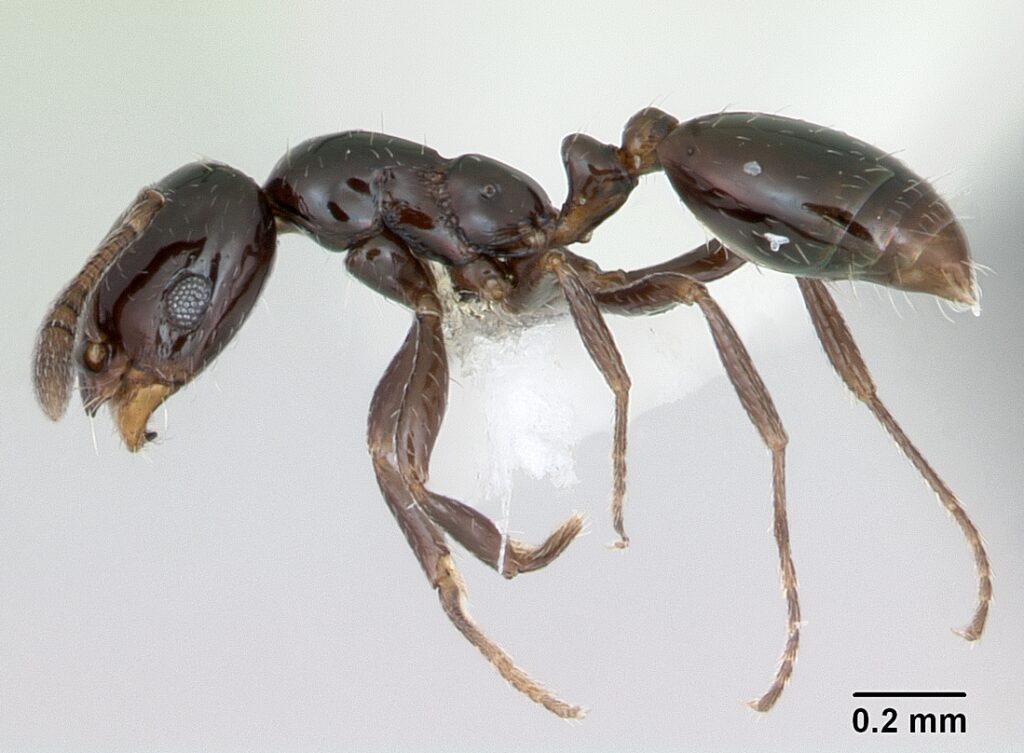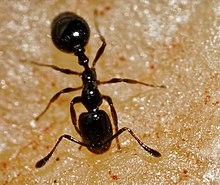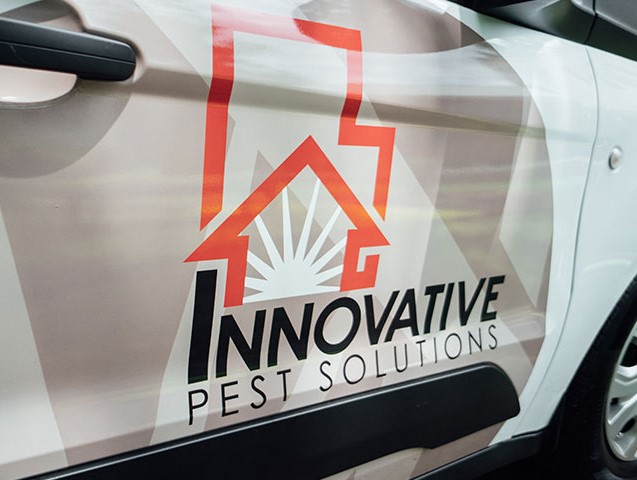Introduction
The Little Black Ant (Monomorium minimum) is a common household pest known for its tiny size and dark coloration. With over 20 years of experience we have seen these ants in a multitude of Raleigh homes over the many years. Despite their small stature, these ants can cause significant inconvenience when they invade homes in search of food. Understanding their biology, behavior, and effective prevention methods is crucial for keeping these persistent pests at bay. At Innovative Pest Solutions, our 1-2-3 Basic Pest Control Service is designed to tackle such infestations, ensuring your home remains free of these and many other unwelcome guests.
Biology of the Little Black Ant

The Little Black Ant is aptly named for its tiny size and jet-black appearance. Adult workers typically measure about 1.5 to 2 mm in length, making them one of the smallest ant species you might encounter in your Raleigh home. These ants have a relatively simple lifecycle comprising four stages: egg, larva, pupa, and adult. The queen, larger than the workers, is responsible for laying eggs and can live for several years, ensuring the colony’s longevity.
Little Black Ants are omnivorous, feeding on a variety of substances including sweets, meats, greasy foods, and other insects. This diverse diet allows them to thrive in a variety of environments, from urban areas to rural landscapes. Their nests are often found in soil, under rocks, in wood, and even inside buildings, typically in well-hidden, protected locations.
Behavior of the Little Black Ant
These ants are highly social insects, living in colonies that can number in the thousands. Each colony includes one or more queens, numerous workers, and, during the breeding season, winged males and females. Little Black Ants are known for their aggressive foraging behavior. They form conspicuous trails as they move between their nest and food sources, making their presence known in Raleigh homes, especially in kitchens and bathrooms.
Little Black Ants communicate through pheromones, which they use to lay down trails to food sources and alert other colony members to potential threats. This chemical communication system is highly effective, enabling the colony to quickly exploit food resources and respond to changes in their environment.
Check out this video from our YouTube page to see some footage of little black ants in a real home.
Preventing Little Black Ant Infestations
Preventing an infestation of Little Black Ants involves a combination of good hygiene practices and proactive pest control measures. Here are some steps you can take to minimize the risk of these ants invading your home:

- Maintain Cleanliness: Regularly clean your home, especially kitchen and dining areas, to remove food crumbs and spills that attract ants. Pay particular attention to floors, countertops, and behind appliances.
- Store Food Properly: Keep food in sealed containers to prevent ants from accessing it. This is particularly important for sweets and greasy foods, which are highly attractive to Little Black Ants.
- Rinse Out Recyclables: All of those bottles and cans that you are recycling may have small amounts of leftover drinks/sugars that the ants may want to feed on. Make sure to triple rinse all food/drink containers to ensure they are clean.
- Eliminate Water Sources: Fix any leaks and ensure that areas such as sinks and bathtubs are dry. Ants need water to survive, so reducing moisture can help deter them.
- Regular Inspections: Conduct regular inspections of your home, both indoors and outdoors, to identify and address potential ant nests or trails before they become a significant problem.
Innovative Pest Solutions’ 1-2-3 Basic Pest Control Service
At Innovative Pest Solutions, we understand the challenges posed by Little Black Ants and other common household pests. With over 20 years of experience battling this pest in the Triangle area, our 1-2-3 Basic Pest Control Service is designed to provide comprehensive protection against these invaders, ensuring your home remains pest-free year-round.
- Initial Inspection and Treatment: Our trained technicians conduct a thorough inspection of your property to identify ant colonies and potential entry points. We then apply targeted treatments to eliminate existing infestations and create a protective barrier around your home.
- Follow-Up Treatments: To ensure long-term protection, we provide follow-up treatments at regular intervals. These treatments help to maintain the protective barrier and address any new ant activity that may arise.
- Ongoing Monitoring and Prevention: Our service includes ongoing monitoring of your property to detect any signs of ant activity. We also offer advice on preventive measures you can take to minimize the risk of future infestations.
With our 1-2-3 Basic Pest Control Service, you can have peace of mind knowing that your home is protected from Little Black Ants and other common pests. Our commitment to quality and customer satisfaction ensures that we always go the extra mile to exceed your expectations.
Conclusion

Little Black Ants may be small, but their presence in your home can be a significant nuisance. By understanding their biology and behavior, and by taking proactive steps to prevent infestations, you can keep these persistent pests at bay. Innovative Pest Solutions’ 1-2-3 Basic Pest Control Service offers a comprehensive solution to protect your home from Little Black Ants and other household pests. Contact us today to learn more about our services and how we can help you maintain a pest-free home.





